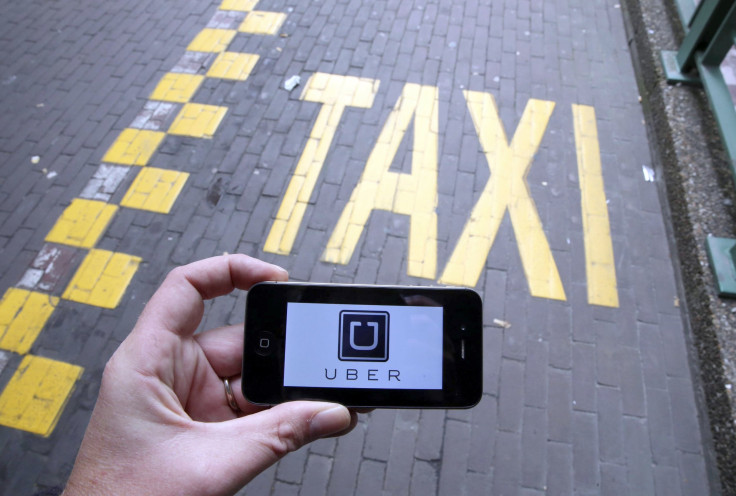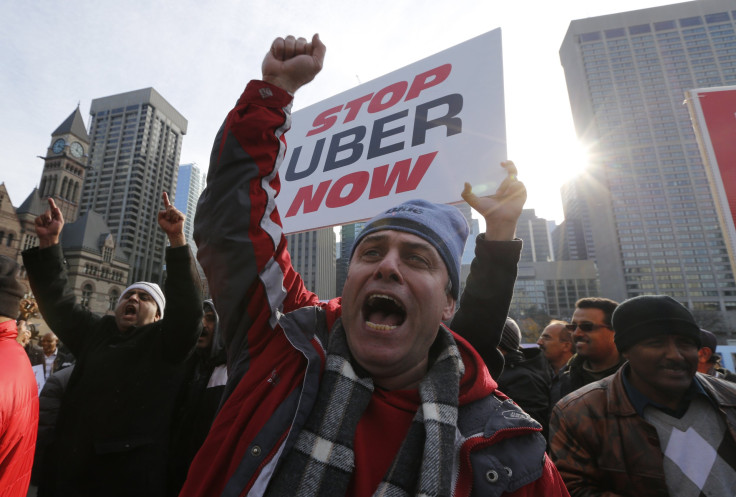Uber, Lyft Drivers Could Win Collective Bargaining Rights In Seattle Council Vote

Update, Dec. 14, 8:30 pm EST: With a unanimous vote in the city council Monday evening, Seattle became the first city to allow Uber and Lyft drivers to bargain collectively. Both companies had opposed the legislation. After the vote, Lyft release a statement: “We urge the mayor and full council to reconsider this legislation and listen to the voices of their constituents who choose to drive with Lyft because of the flexible economic opportunity it offers.” The Seattle bill is the first of its kind and is likely to energize similar efforts in other U.S. cities.
Mayor Ed Murray, who would have to sign the bill for it to take effect, wrote a letter to the council saying that while he supports workers' right to unionize, he would like to see the legislation amended. It is likely to face legal challenges as well. Under the National Labor Relations Act, independent contractors do not have collective bargaining rights.
Original story: Drivers for Uber and Lyft in Seattle could soon become the first in the nation with the right to form unions. On Monday, the city council is expected to vote on an unprecedented proposal that would extend collective bargaining rights to drivers for traditional cab companies and ride-hailing apps alike.
The proposed plan marks a bold -- and controversial -- attempt to bring labor protections to workers in the so-called on-demand economy.
“From what I can tell, it’s never been tried before,” the bill’s author, Councilman Mike O’Brien, told International Business Times in October. “It’s a piece of innovation in an innovative industry.”
Drivers for Uber and Lyft are currently classified as independent contractors rather than employees. As such, they lack basic employment protections, such as the right to minimum wage and overtime pay. Contractors are not eligible to be reimbursed for job-related expenses. And they remain exempt from federal labor laws that guarantee the right to form unions and collectively bargain with employers.

The Seattle plan does not change the classification of drivers -- a source of ongoing debate and high-profile class action lawsuits. But it extends unionization rights to drivers and encourages labor organizations to represent them. Through collective bargaining, supporters hope that drivers can then hammer out an agreement that covers issues such as pay and fuel reimbursements.
Observers expect the bill to face legal challenges if passes. Critics charge it violates labor law and antitrust laws.
Uber did not respond to a request for comment. Lyft spokeswoman Paige Thelen said “the proposed legislation raises a range of concerns, including Seattle drivers’ privacy rights and circumventing federal laws.”
“The proposal could also restrict the flexibility that attracts drivers to the Lyft platform, the vast majority of whom drive less than 15 hours per week,” Thelen continued. “Given these significant and costly consequences, we urge the full Council to reject the bill.”
Uber has roughly 400,000 drivers nationwide, including 10,000 in Seattle, according to the Associated Press. Lyft also has thousands of drivers in Seattle.
© Copyright IBTimes 2025. All rights reserved.






















